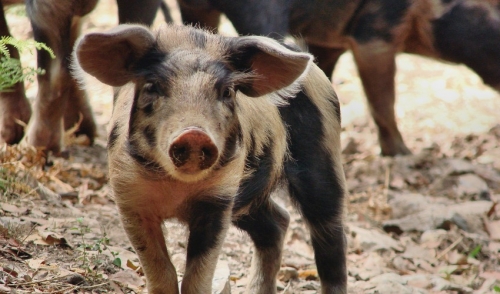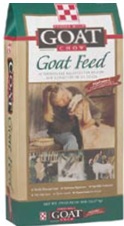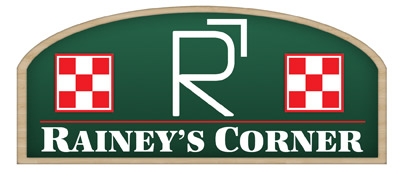
Honor Show Chow and Purina Goat Chow Testimonial
“Once my goats are old enough to go on the milk stand, they get coarse Purina Goat Chow, which they love.”
At 68, Beverly Calcote laughingly describes her goat farm in Monterrey County, California as a leftover 4-H project. “It’s a small operation, with about six to nine milkers.” The total number of goats fluctuates, depending on the cycle. Last year she kidded out 12 boer goat does, and more than half of them had triplets. She also kidded out 15 dairy goats, and it’s dairy goats that are her main love.
But Calcote’s very first goat wasn’t a milker. He was a club mascot that she and husband Skip rescued from the pound 48 years ago. It was later that she developed an interest in dairy goats when she discovered her nine-month-old daughter was allergic to cow’s milk and formula.
“She thrived on goat’s milk,” recalls Calcote. “At first, we went to a farm to buy the milk, but then we got our own goats.” Eventually, her family started showing goats at fairs and national competitions. Her children raised goats in 4-H, and so did her grandchildren. After showing goats for 40 years, today Calcote still gives a lot of her goats to 4-H kids.
She also sells does to a nearby dairy that makes cheese. “They take all of the goats I’m willing to part with because my does are so healthy on Purina® feeds,” claims Calcote. “Their milk production is good, which makes for great baby goats. I get top dollar.”
Her children and grandchildren have followed in her footsteps, raising horses, pigs, steers and goats and competing at the national level. Two of her grandchildren earned scholarships to California Polytechnic State University, a fact Calcote proudly attributes to their extensive 4-H experiences.
Calcote insists the secret to her success is cleanliness, good food and good management.
“I give my baby goats lots and lots of milk, then I feed them supplements. Purina Mills makes a lamb starter called Honor® Show Chow® Showlamb Starter DX that I creep feed along with Honor® Show Chow® X-Clamation DQ,” Calcote says. “My goats are on pasture and browse, too. And I swear by the Grainland Select® Alfalfa Pellets,” she says. “Hay is very expensive here so I buy a year’s worth at a time and supplement with the alfalfa pellets so I don’t have to worry about the quality of the hay so much. Once my goats are old enough to go on the milk stand, they get coarse Purina® Goat Chow®, which they love. And I can’t tell you how often they jump down off the milk stand and go right over to take a couple of nibbles of Purina® Goat Mineral®.”
“The biggest mistake I see people make is that they don’t trim down their herds,” claims Calcote. “It’s the saddest thing I see. They keep more animals than they can afford to feed properly. I’d rather spoil six than feed 40. Plus, if you skimp when they’re babies, their not going to put it in the bucket down the road.”
Calcote is also a big believer in cleanliness. “I give tetanus and clostridia types C&D vaccines, and I do worm my goats a little,” she says, “but I mostly rely on rotating pastures. That way, you don’t have to use heavy meds.”
Calcote says her goats are big and have very few health issues. Her goats have never tested positive for Caprine Arthritis Encephalitis Syndrome (CAE), a devastating disease believed to spread through colostrum and milk. “I think it’s because, since the beginning, I’ve never brought in does from the outside, just bucks.”
She’s also a stickler about feed quality. “You have to have confidence in the people putting the feed into the sacks,” she insists. “You have get on a program and stick with it—stop switching around looking for a better mousetrap. I’ve invested in generations of these animals, so I’m not going to take chances. I’ve visited the plants where they make Purina Mills® feeds, and I’ve seen the truckloads of corn they turn away because it’s inferior. You just know that corn is going into someone else’s feed, and I don’t want any part of it.”
Calcote calls herself “an old hippie” and says the feeling she gets from raising goats on her small farm is hard to explain. “When you go down to the barn, and you sit there and milk, and the goats are waiting their turn, and the kitties are waiting for milk, and the dogs are lying there with their tails thumping on the ground, well, I guess it’s almost a spiritual experience.”
 • High Quality Natural Plant Proteins: All natural product with no animal protein by-products
• High Quality Natural Plant Proteins: All natural product with no animal protein by-products
• Natural Oils from Pure Ingredients: Helps keep skin supple
• Highly Palatable Ration: Goats love the taste; Helps reduce sorting
• Key Trace Minerals: For bright eyes, reproductivity, strong bones and healthy immune system
• Vitamins A, D & E: For supple skin, healthy coat, excellent milk production and overall good health
• Proper Calcium to Phosphorus Ratio: For strong bones
